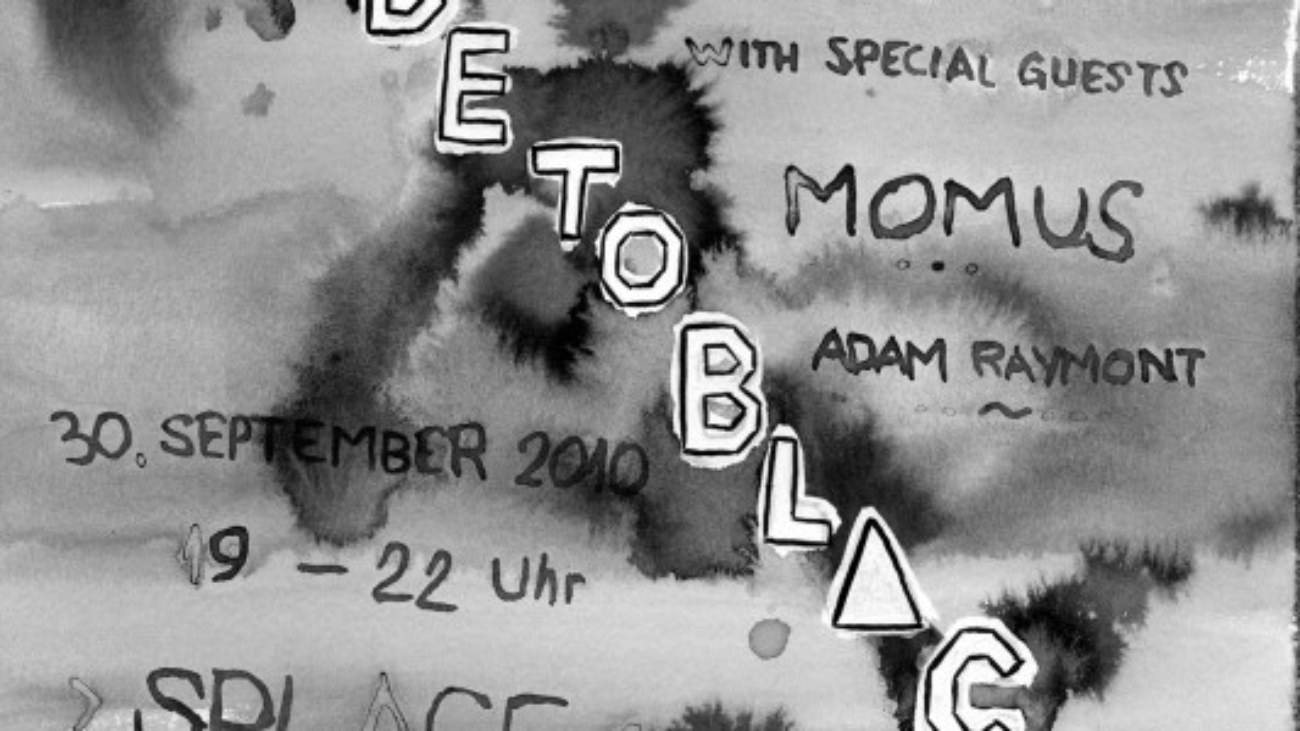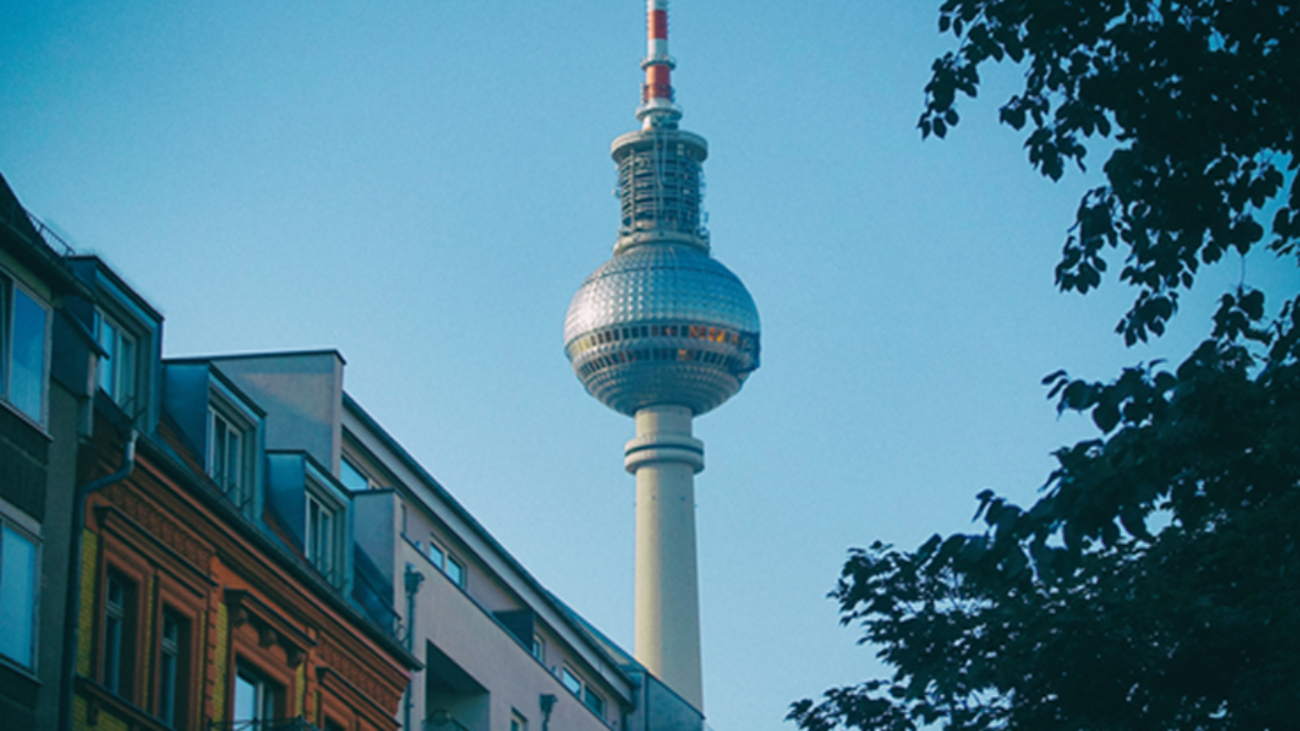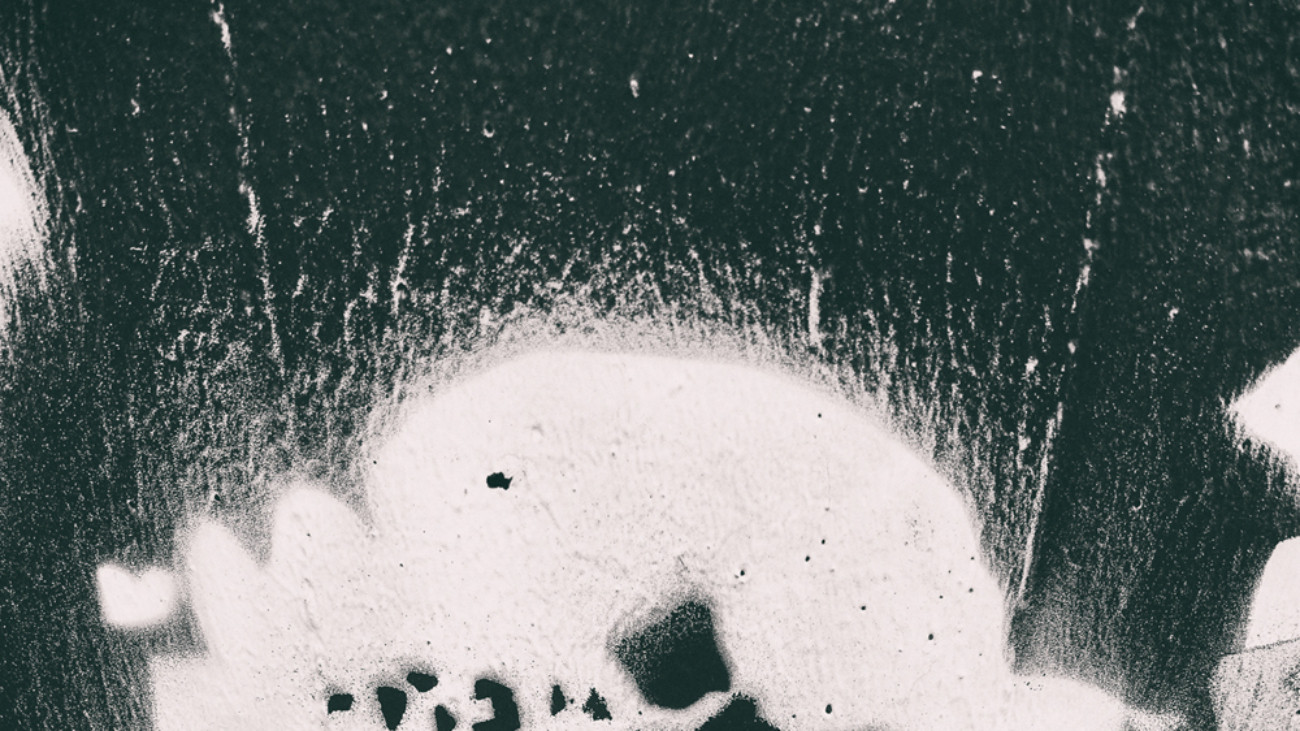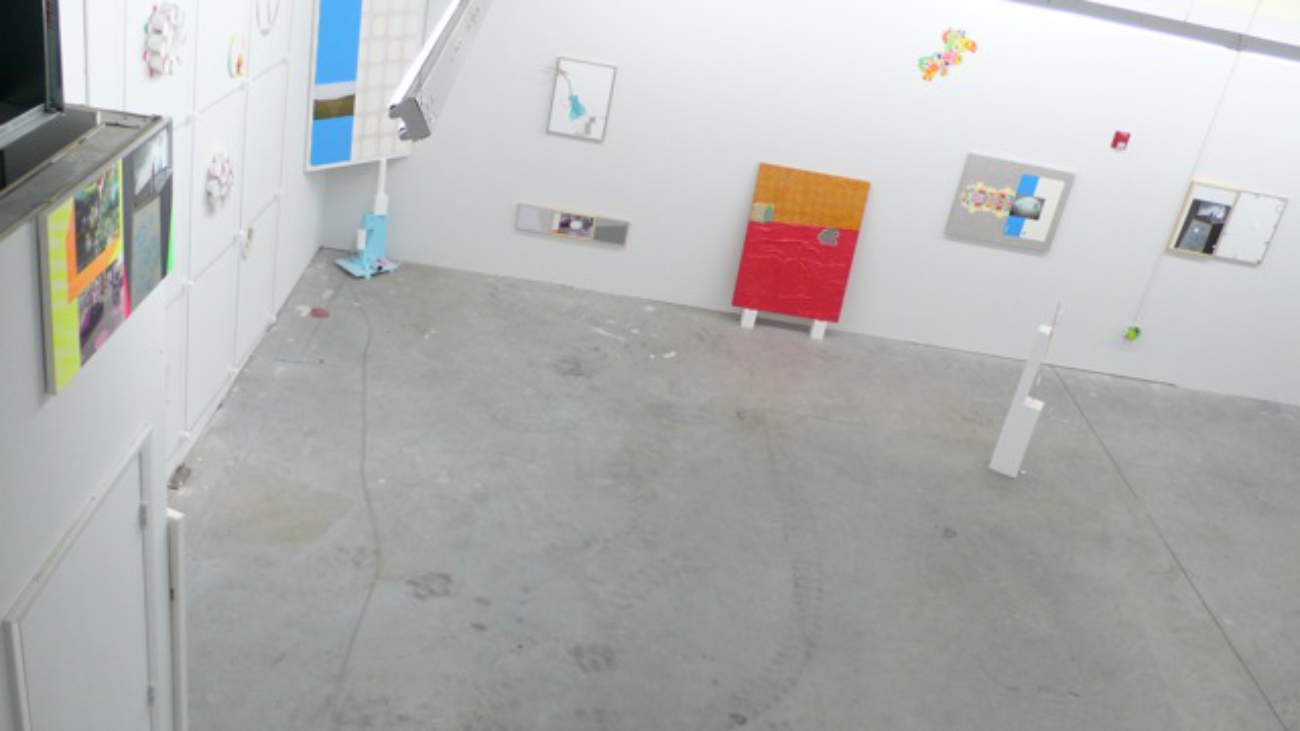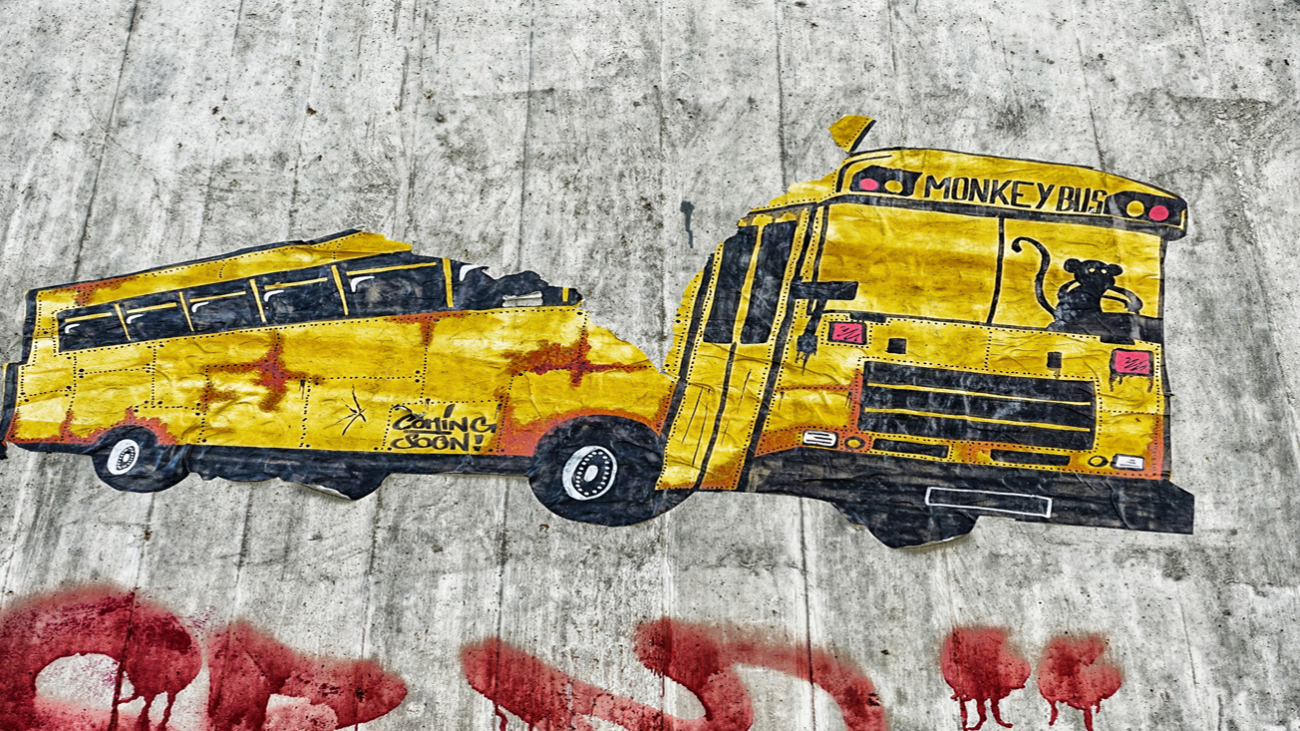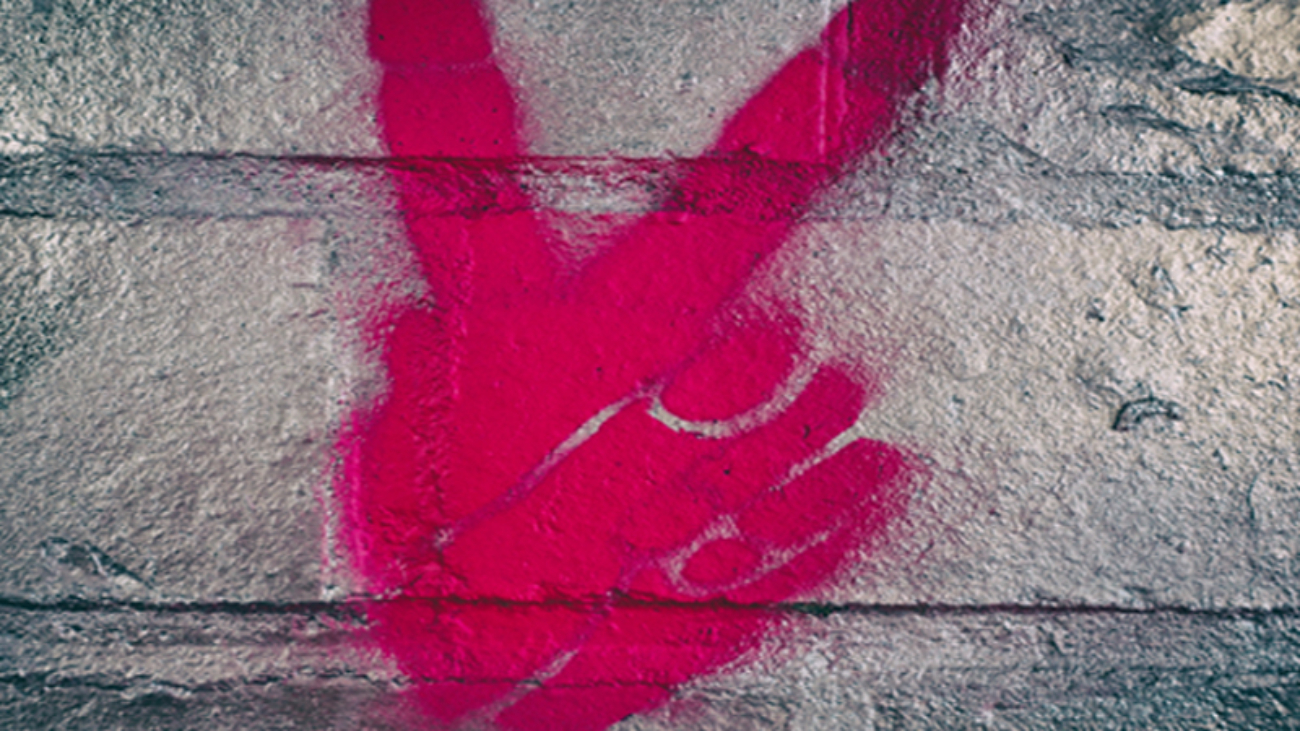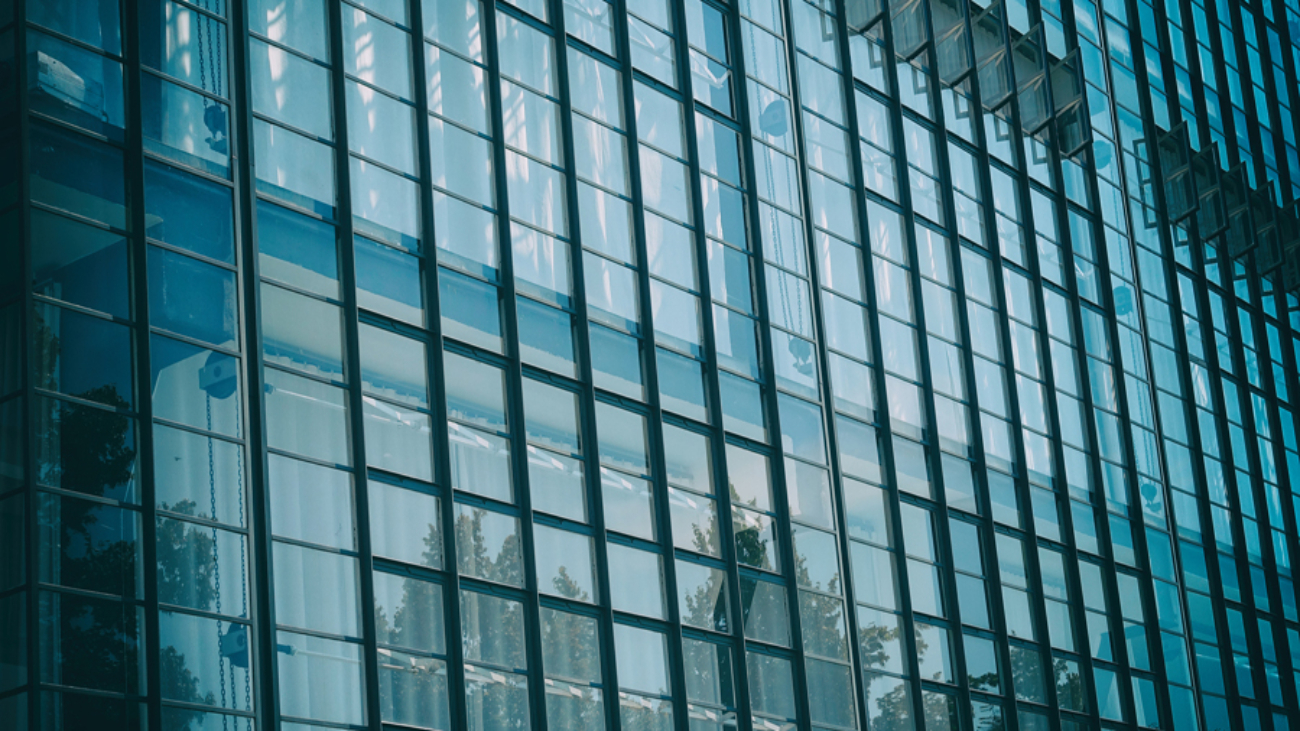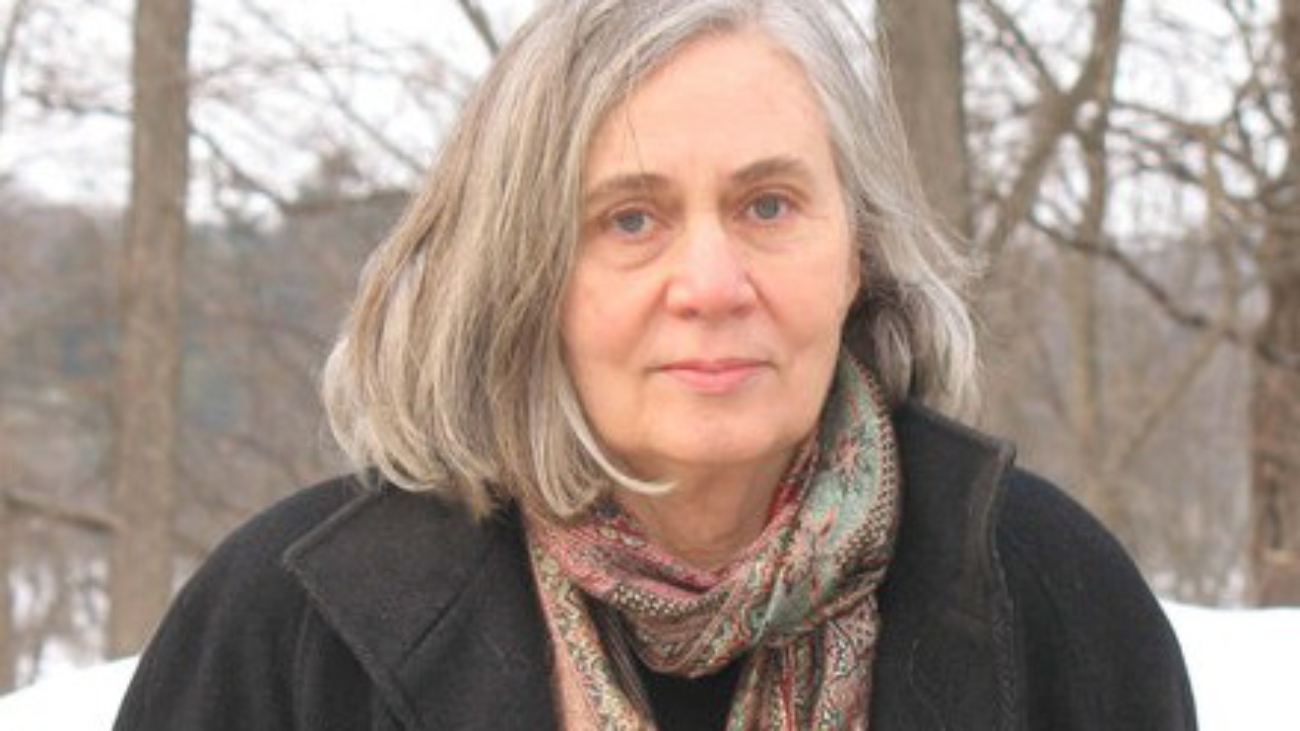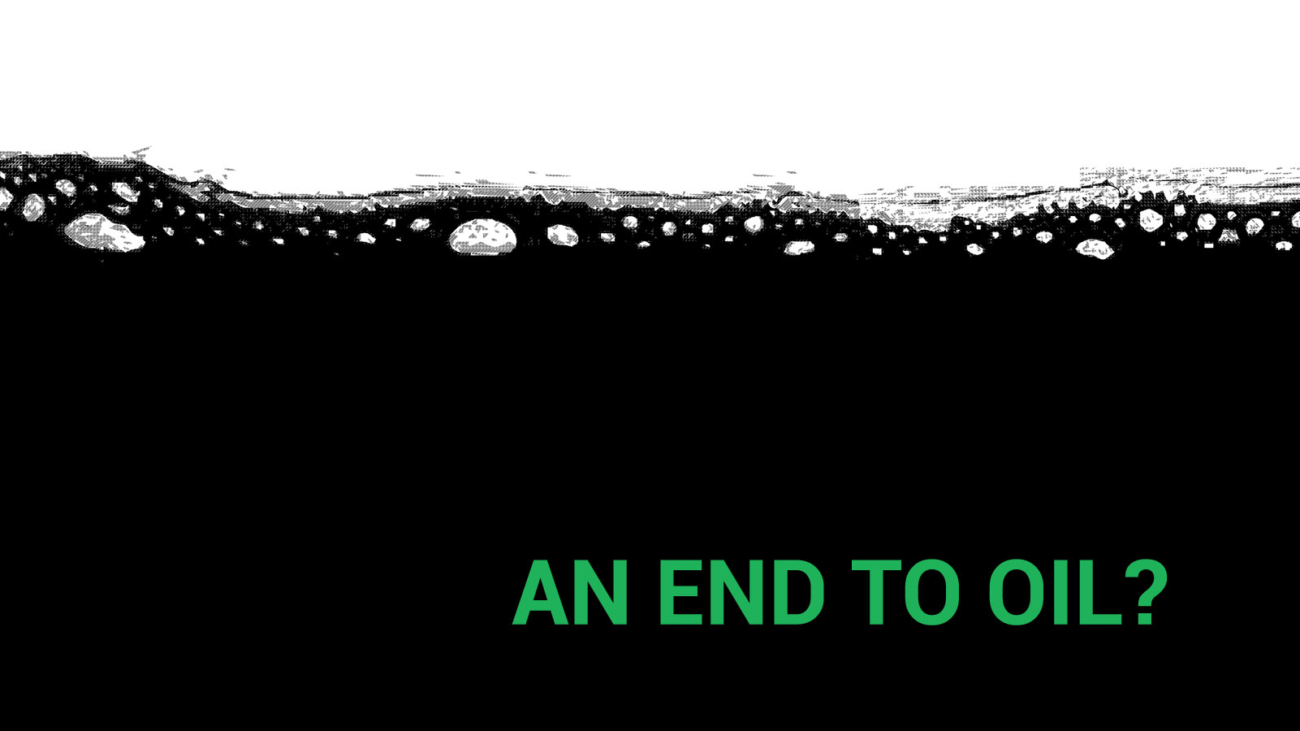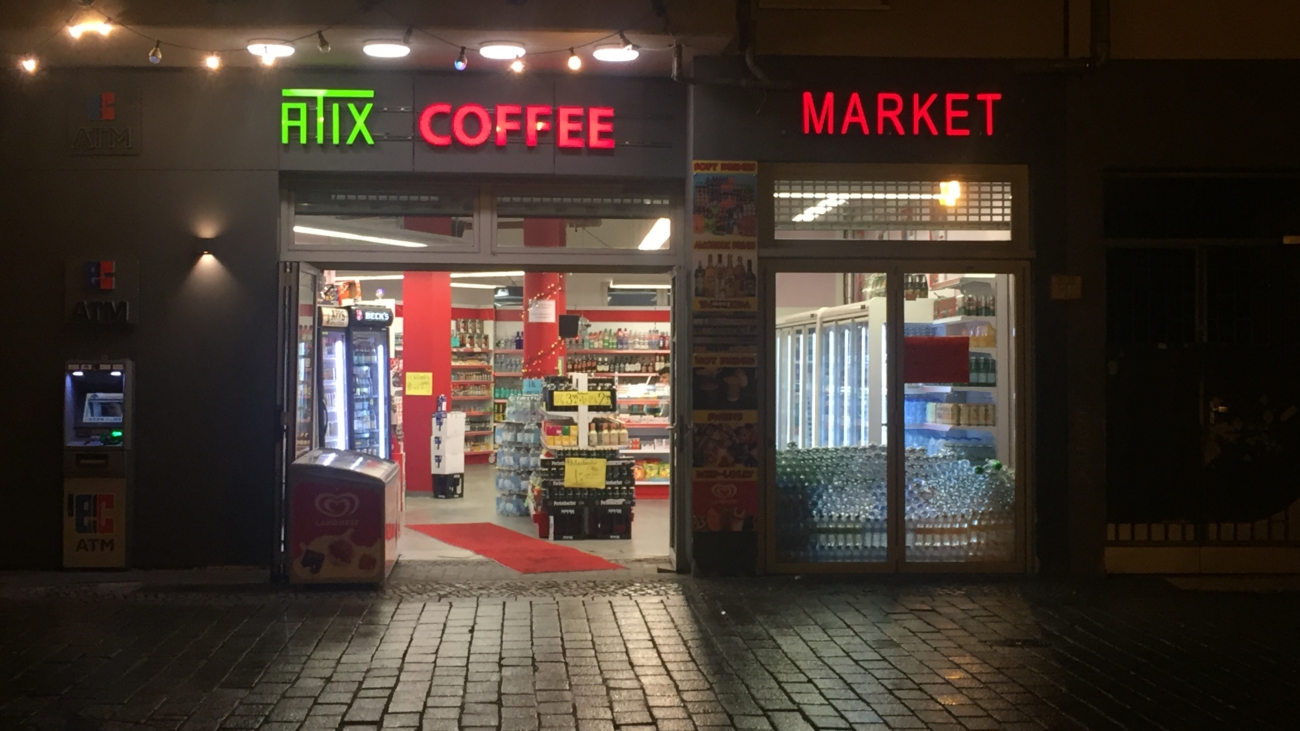Splace was an eleven part series of experimental art exhibitions in Berlin during the Summer of 2010. The shows each took place for one night only in the Fernseherturm pavilion, a unique space located at the base of the television tower in Alexanderplatz. Organized by Magdalena Magiera, Antje Majewski, Dirk Peuker, and Juliane Solmsdorf, Splace allowed an international group of artists the freedom to experiment and exhibit work outside of a standard gallery context.
Due to the television tower’s unusual architecture and complex history, the location proved to be an attractive yet equally challenging venue. Though the artists each created individual shows, they were also participants in the whole- each creating or installing work in the same unusual environment. The threads that ran through the series were evident in the way the artists responded to the space itself, whether by using the location as inspiration or directly interacting with the architecture and its environment. The Basso Bar was a recurring part of the series. They designed a mobile ‘pop-up’’ bar which unfolded from an art shipping crate. Members of the Berlin artist collective, Basso, manned the bar at every opening, helping to create an informal social environment to compliment the vernissage each week. The hand-made bar at Splace also stood in contrast to the neighboring franchise café’s with their branded prefab décor.
The project began when Majewski and Peuker, who teach at Weissensee Hochschule fur Kunst, were invited by the current owners of the pavilion to use a commercial space in the base of the tower for student exhibitions while it stood unoccupied. When summer came they enlisted Magiera and Solmsdorf to develop a broader project., “I had already been thinking about finding a place to hold a series of exhibitions” Majeswki said, “a place for artists to make work that is immaterial or conceptual or fleeting… “. Majewski had thought of calling the project Blind Spot, “…coming from the place where the nerve of the eye meets the background of the eye; the only part of the eye not sensitive to light. The Fernseherturm is a transmitter of information… it’s one of the main knots of traffic in the city and yet it’s still so unknown.” Majewski had hoped to teach a course on Berlin Alexanderplatz. The course, in her words, was to be about, “The relationship of art to the city in general, and our relationship to our past, which is also a blind spot in [contemporary German] art. If you take Poland, for example, artists there talk about Polish history all the time. In Germany it seems that the past doesn’t appear in art. Here no one seems to be interested the fact that this city was divided 20 years ago. It doesn’t appear- it’s like a blind spot.”
Although Alexanderplatz is not known as one of Berlin’s cultural hotspots, it is still the historical center of the fractured city and a prime example of the unfinished quality one finds here. Berlin is a work in progress and the landscape of Alexanderplatz reflects the confused remains of its dreams, destruction, restoration, division and re-unification. The architecture surrounding the train station, for example, spans a century of the city’s history– two dense, closely set buildings designed by Peter Behrens in 1929 as part of a plan for a ‘big city plaza’ stand apart from later Soviet era buildings in the outlying plaza; leftover landmarks like the Haus der Lehrers and Haus der Reisen, with their classic 60’s modern design and striking Social Realist friezes and murals. Beyond them, rows of former East German housing blocks in various states of decay stretching out towards the stately Karl-Marx-Allee. Today Alexanderplatz feels more like a series of compromises, or settlement, rather any unified development. Recently, several prefab movie theaters and shopping malls have been built in the plaza, adding to the visible time-line. There is no easy place to rest the eye, with the exception of the famous television tower, the Fernseherturm, perhaps the most recognizable structure in Berlin.
When it was built, the television tower was a key part of the German Democratic Republic’s effort to rebuild Alexanderplatz as the center of East Berlin. Under the direction of Walter Ulbricht, the leader of the Socialist Unity Party which governed East Germany at the time, the construction of the tower began in 1964. The design was intended to symbolize the GDR’s strength and modernity and it also, probably not coincidentally, imposed on views from the West. In the years since the fall of the Berlin Wall, however, the tower has become a more welcoming symbol of Berlin, figuring prominently in the city’s skyline and commonly found as a graphic on souvenirs.
Having access to this unique location for the summer, the organizers of Splace invited artists to use the empty commercial space in the base of this iconic landmark, a structure which sits like a modernist crab beneath the shaft of the tower itself. At the time, this large, open room, with floor-to-ceiling windows looking out onto Alexanderplatz, had been left completely raw, with cement floor, load bearing columns, and unfinished walls exposing the core structure. The architecture of the room continues the angles and sweeping lines of the retro-futuristic exterior. The ceiling is an accordion-like series of folded planes broken by ventilation shafts and pipes which follow the irregular path of necessity rather than design. The raw condition of the space provided an intriguing setting, but in typical Berlin DIY spirit, the artists had to supply any extra lighting beyond the bare minimum available and work around the limited utilities, even having to bring water up in buckets from the fountain in the park below. The solid cement flooring tiles became a recurring raw material for the different artists as they were transformed and repositioned, turned into stages and stairs and other uses from one show to the next.
Some artists explicitly included the television tower in their work, like the first show by Jim Skuldt. Skuldt flew a customized, remote-controlled model airplane fitted with a camera up to the top of the tower, sending a live video feed of the birds-eye view of the plaza and observation deck down to a small monitor in the space below, thus evoking political protest flights of the past involving small planes flying over Soviet lines.
In one of the larger group shows at Splace, artist Yusuf Eitman presented a live performance and video of his interaction with the architecture. Wrapped in bright knit layers like an exaggerated 80’s aerobics instructor, he stretched and danced irreverently around the pavillion, mocking the tower’s imposing shape.
Taking an allegorical approach with her installation, Juliane Solmsdorf used a Xenon spotlight taken from an East German tank as both a light source and sculptural element: the bright beam of white light acted as a fallen tower across the floor, illuminating the assemblage of other found objects, including a poetic description of the dome as metal tea-eggs, slowly turning in the middle of the room.
Several other exhibitions explored the relationship between history and mythology. Ulrike Kuschel referenced the story of “St. Walter” which was the ironic moniker given to Walter Ulbricht because of the unintended cross that appears at the top of the Fernseherturm as the sun reflects off of the faceted dome, The tower was rendered less potent as a symbol of Socialist omnipotence by the cross, also known as “The Pope’s Revenge”. Kuschel created an audio guide telling a story of “St. Walter” and depicted him as an ironic icon, drawn in a Social Realist style on catholic prayer cards. Continuing with a similar sense of narrative in “It All Belongs to You” Joanna Warsza used a selection of art sources and found media to address facts and urban legends about the Fernseherturm, presenting a silent “time-based lecture” which referred to the loss of 30 minutes when the rotation of the revolving restaurant at the top of the tower was sped up from one revolution an hour to two in 1989.
Dealing further with the architectural history of Berlin, Johannes Paul Raether presented a provocative case for rebuilding Hitler’s Reichkanslei by following the logic of the current debate over restoring historical sites from Berlin’s past, like the controversial proposed reconstruction of the Schloss on Unter den Linden. Raether’s presentation pointed out the importance of the Reichskanslei to Berlin’s history and it’s influence on architecture in the city, showing that it was the Reichskanslei that set the standard height, or ‘Traufhöhe’, and proportions for buildings which are still used as the standards for building in Berlin today.
The Filmprogramm at Splace was an evening dedicated to the screening of short films and video revolving around the theme of location and space. Curated by Bettina Nürnberg and Dirk Peuker, the films ranged from Mattias Müller’s reworking of archival footage showing the construction of architect Oskar Niemeier’s sprawling, futuristic vision of Brasilia, built around the same time as the Fernseherturm and echoing it’s architecture, to Karl Kels’ black and white meditation on a Hippopotamus habitat at a zoo. In it, Kels cut from alternating views of workers earnestly cleaning and painting the enclosure to the animals living in it with savage disregard for their newly white-washed surroundings.
The otherworldly, cinematic quality of the space was accentuated by several of the artists on other evenings as well. Hendrick Weber’s site-specific sound installation, for example, consisted of water dripping from the air-conditioning ducts along the ceiling into bowls filled with charcoal, a material that was once the main source of heating in Berlin. The sound was amplified, and in the darkness, the piece became an ambient soundtrack for the rain-soaked city glittering through the plate glass windows, texturing the distance between outside and in and expanding the industrial feeling of the room.
In “A Tribute to Cass Elliot”, Delia Gonzalez and Jaro Straub collaborated by pairing projections of Straub’s melancholic, black and white photographs of an ageing hotel in California with Gonzalez and a guest performing “Mamma” Cass Elliot songs. Gonzalez says the music evokes a particular combination of psychedelic pop with darker visions of decaying glamour specific to Hollywood in the late 60’s, a time when the early film stars were first seen aging, losing that soft-focus haze of immortality. The dark, cinematic atmosphere this created seemed like a Weimar-era cabaret mixed with Karaoke as if envisioned by Fassbinder or David Lynch.
With their show “Freisler”, Antje Majewska and Agnieszka Polska’s fantasy was an homage to the Polish conceptual artist Pawel Freisler, referencing an enigmatic metal egg that Freisler once used as an object of departure. Furthering the story of Freisler’s earlier work, Majewski and Polska imagined the space as a garden, constructing a story around the location using paintings, video, sculpture and performance. Freisler, making the kind of conceptual work that inspired Splace to begin with, was an early practitioner of Actions, immaterial art, and conceptual art as a form of political and cultural critique, rejecting what he perceived as the materialism of art and freeing it from institutional and physical boundaries.
The Splace series ended with Dirk Peuker and Amy Patton’s show titled “Fade to Black”, an exhibition which featured a minimal reordering of the room and spare, dramatic lighting, bringing much of the attention back to the original space as an artificial, theatrical set-piece. Patton’s wall-drawing incorporated a hand-written excerpt of text from a pulp novel lit by an empty 16 mm film projector. The deconstructed condition of the space was echoed in Peuker’s silkscreen prints depicting details of a deserted Asian pavilion in the outskirts of Berlin, with traces of ornament and decorative objects left behind in the otherwise forgotten space.
As with most of the exhibits at Splace, there was an attention to the history, both real and imagined, of places, drawing a connection between the individual and collective memory of spaces we inhabit and how memory itself can be viewed as a kind of place.
Splace existed as a DIY laboratory below the tower of the Fernseherturm, where art in its many forms took on special roles. Photography became a way of recording temporary structural interventions on the space, like evidence of creative vandalism. Drawings and paintings became further marks in concert with the sheetrock on the huge unpainted walls. The space was like an avant-garde stage for performances and site-specific installations. And the architecture added another dimension to projected images and films. There was a give and take between the room as it stood and the artists’ efforts to engage it in dynamic dialogue, like retrofitting the soul of the raw space – but , by extension, also the soul of the tower. In a space that, in GDR times, was used as a television studio and again as a state sanctioned gallery, these playful and often absurd happenings gave new life to the dormant space and added another chapter to the tower’s multi-layered history.
Participating Artists include (in chronological order):
Jim Skuldt
Luis Berrios-Negron
Juliane Solmsdorf
Hendrick Weber
Delia Gonzalez, Jaro Straub
Leopold Kessler
Olaf Nicolai
Bettina Nuurnberg & Dirk Peuker
Matthias Müller
Salla Tykkä
Karl Kels
Mathilde Rosier
Agnieszka Polska
Antje Majewski
Yusuf Eitman
Thomas Kilpper
Thomas Nösler
Johannes Paul Raether
Joanna Warsza
Lena Inken Schaefer
Ulrike Kuschel
Thomas Bayrle
Dani Jakob
Sunah Choi
Amy Patton
Dirk Peuker
Special guests: Momus, Adam Raymont
For more information, see the project blog at: (<a href=“http://www.splace.blog.de“>http://www.splace.blog.de

